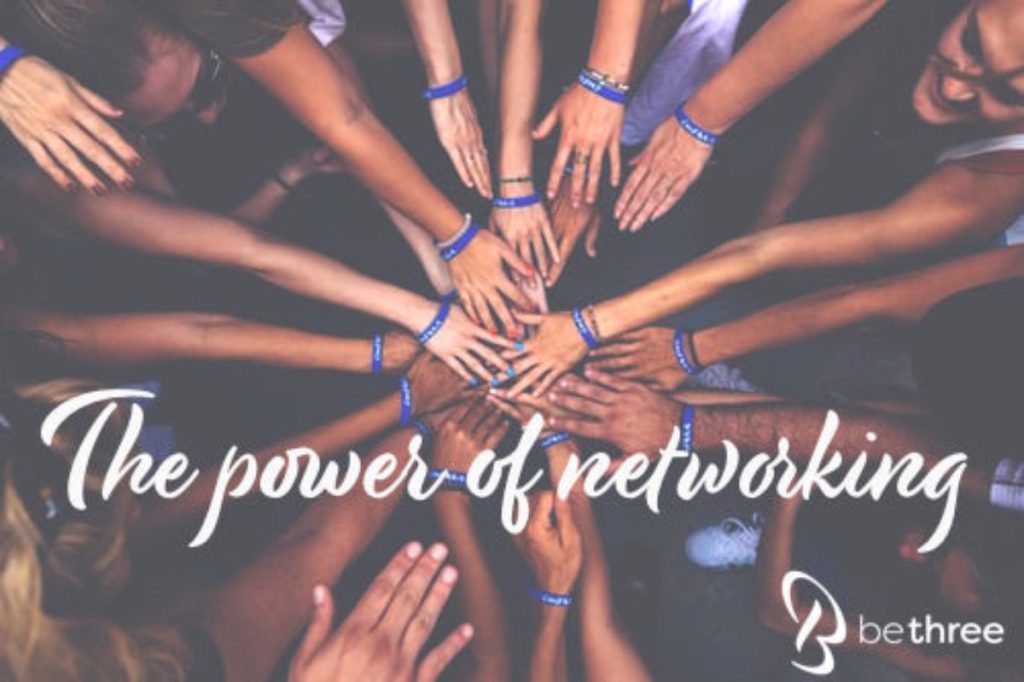
By Sanjana Vig MD, MBA
I think networking is an underutilized method for growth. This is especially true in the medical field, but even generally speaking, when I talk with others, it comes to light that the idea of networking is sometimes a forgotten tool. I’ve been guilty of this as well. For instance, when I speak to others about career changes, or wanting to branch out and try new things, networking is always mentioned, but it seems to be the last method used.
Why Networking Matters
I obtained my MD/MBA and when I was in business school, one of the things that was hammered into us was the value of networking, and countless examples were given to us where people got jobs because a position was created for them…all because they networked and made connections.
Often, making a change, whether for a job or lifestyle changes, or even side hustle ideas, comes from inspiration we get from others. But you’ll never know what is possible, or what others are doing, if you don’t put yourself out there and just talk.
The more you know the better decision you can make right? In the same way, the more people you know, the more opportunities will present themselves to you, and the better able you’ll be to decide which is best for you.
What Networking Requires
The whole idea here is to put yourself out of your comfort zone. Yes, your friends, family and colleagues can also all be helpful and you should definitely start there; however, if you really want to branch out and explore opportunities, then you need to meet new people.
I know how annoying that can feel, this idea of “aw man, I have to talk to strangers”. As an extroverted introvert, I feel your pain (basically, I’m very outgoing with friends and people I know, but I get exhausted talking to strangers). So if you’re like me, I get it. I’d recommend, then, that you do this in small doses and listen to and follow your instincts. If a get together doesn’t seem like it would hold anything valuable for you, then don’t go. This way you’ll save your energy for those times you really are interested.
In addition to pushing your personal boundaries, you will have to create a spiel for yourself. Everyone has a story to tell, including you. What is it that you hope to accomplish by meeting people? What do you hope to gain? What do you have to offer? A small paragraph of information is what you need to have ready when you meet people. You want to put out there who you are, what you do, and maybe what you’re thinking about or interested in for the future.
Be prepared, as well, to ask people meaningful questions about what they do. The interaction isn’t just you being an interviewee; you are also gathering information and, ultimately, having a conversation that hopefully leads you to some actionable items (e.g., names to contact, or things to look up).
How to share your story
Networking is like dating (unfortunately). It can be painful, but it can also be very insightful. Some people are way better at it than others, but that’s ok. So long as you find your groove and figure out what works for you.
First, just keep an open mind wherever you go. You never know who you’ll meet or when. So, for instance, when you do meet a new person, and they start asking questions about what you do, this is your opportunity to insert parts of your story. As an aside, you don’t want to sound like you’re advertising yourself. This is a conversation.
So while you’ve prepared a spiel, you don’t want to be just spewing it out all at once. Work your story into the conversation; ask questions in return. For every two pieces of information you answer about yourself, you should ask at least one question in return. Like dating remember? No one likes talking to someone that only talks about themselves the whole time. Just keep in mind that you’re exchanging information.
Where to Begin
Networking seems like a no brainer, but it really is an art, and like all things, requires practice. The more you do it, the better you become. Yet, where do you start?
Start with friends and family
Start with the people who know you best. Tell your inner circle what you’re thinking and where you’d like to go. See if they have any advice or anyone they know that you could talk to.
Work Colleagues
This is a bit tricky. If you’re interested in leaving your current job or making a career change, I wouldn’t tell anyone at your current job, at least not in the beginning when you’re still figuring things out.
However, if you’re looking to move up in your current place, or maybe make a parallel move, then I would talk to your superior and get a feel for what is possible and what you would need to do.
Alumni events
If there’s a local alumni group from your alma mater, join it. Go to events and see what others from your school are doing. The nice thing about this is that you already have common ground with these folks.
Professional associations
Whatever you do for work currently, I’m sure there’s an association for it. For instance, every medical specialty has an association. For anesthesia, its the American Society of Anesthesiologists. There’s also associations/groups for each subspecialty and focus groups for those that want to create protocols. The downside is that there’s usually a membership fee, so don’t join all of them. Just join the ones that pertain to your work and your interests. Go to meetings, attend the “networking events”, all of which provide free wine and drinks, and start introducing yourself.
I got my current job because I did just this. Read about that here.
Good old email
Sometimes, the best way to network is by email introduction. The chances of getting a response are lower (especially if you haven’t met the person and you’re randomly reaching out), but it still does happen. If walking up to a stranger is difficult for you, then this is a great way to practice putting your story out there.
The Benefits of Networking
In the beginning, your efforts may not produce the results you are looking for. However, definitely keep going. Once you start, it becomes easier and you get a feel for what to share about yourself and what questions to ask in regards to what you’re looking for. The more people you meet, the higher the likelihood that doors will start opening for you.
Even if you don’t manage to land a new job or make the change you were hoping for, the effect of networking will still be a positive one. You’ll have met so many new people, you’ll get a better sense of what it is that you truly want, and more ideas of what’s possible!
Plus, you never know who YOU will influence. Sometimes the greatest benefits we get aren’t from what someone does for us, but what we are able to do for others. That’s pretty powerful as well, because one day you may get a call from someone asking for help, because you’ll be that person who knows someone who knows someone.


